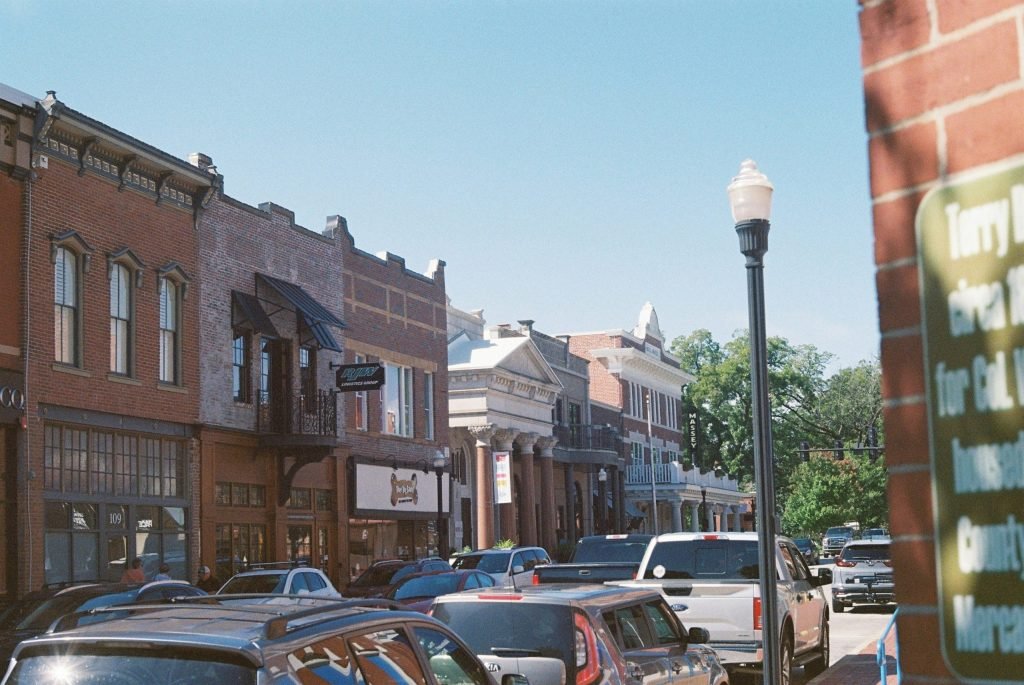
Mastering Mt. Pleasant Closing Costs: A Comprehensive Guide
Buying a home in Mt. Pleasant, Michigan, involves more than just negotiating a purchase price—closing costs can add 2% to 5% of the loan amount. Understanding these crucial real estate expenses empowers you to plan accurately and avoid any last-minute surprises. In this comprehensive guide, you’ll discover what closing costs truly are, a detailed breakdown of typical buyer fees in Mt. Pleasant, how government-backed loans (FHA, VA, USDA) differ, smart strategies to reduce your expenses, valuable tools to estimate your personalized costs, local tax and recording requirements, and the key professionals who will support you through closing. By mastering each component, you’ll gain invaluable local market expertise, demystify complex fees, and confidently move toward homeownership with trusted support from Mt. Pleasant Real Estate – Your Guide to Homes in Central Michigan.
Closing Costs Explained: Why They’re Crucial for Your Mt. Pleasant Home Purchase
Closing costs represent the essential array of fees and pre-paid expenses charged at the completion of a real estate transaction. They encompass lender charges, title and escrow services, government recording fees, and pre-paids. Knowing these line items helps home buyers set aside the correct funds and avoid financing delays. Proper planning for closing costs ensures affordability remains intact and prevents renegotiations at the final walkthrough, laying the foundation for a smooth handoff of keys and title. Understanding these costs in Mt. Pleasant aligns with overall budget management, tying directly to your mortgage terms and down payment strategy.
Demystifying Closing Costs
Closing costs in real estate transactions encompass a variety of fees, including lender charges, title and escrow services, government recording fees, and prepaid expenses. These costs, which can range from 2% to 5% of the loan amount, are crucial for buyers to understand to ensure they have sufficient funds and avoid potential financing delays.
Investopedia
This trusted resource offers a foundational understanding of closing costs, complementing our detailed local insights.
Defining “Closing Costs” in Your Home Purchase
Closing costs refer to the collective charges for lender fees, title insurance premiums, recording charges, and prepaid obligations required to finalize a home purchase, creating a complete financial package beyond the sale price.
Think of lender fees as covering origination, underwriting, and credit-report charges; title costs ensure clear ownership; government fees officially record your deed; and prepaid items cover property taxes and insurance until the first escrow cycle.
By bringing these charges together, closing costs deliver transparency on the true cash-to-close amount, preventing unexpected expenses at settlement.
The Importance of Closing Costs for Mt. Pleasant Home Buyers
Closing costs directly influence your required cash reserve and can shift affordability thresholds. Knowing typical percentages and average dollar values in Mt. Pleasant empowers you to compare lenders and negotiate seller concessions effectively.
Precise cost knowledge strengthens your loan application, as underestimating expenses risks funding gaps or delayed closings, which can jeopardize negotiated protection periods and rate locks.
Integrating these costs into your mortgage-planning phase maintains your negotiating power and ensures a confident path to homeownership.
Integrating Closing Costs into Your Home Purchase Budget
These fees, typically 2%–5% of your loan, are a vital part of your overall homebuying budget to prevent overextension. Allocating these funds early ensures your down payment balance remains sufficient.
Consider a $250,000 home in Mt. Pleasant: a 3% closing cost means an additional $7,500 beyond the down payment, a crucial figure for your savings goals.
By weaving closing costs into your financial strategy, you prevent unexpected gaps and ensure a smooth, on-time closing.
Typical Buyer Closing Costs in Mt. Pleasant, MI: A Detailed Look

When buying in Mt. Pleasant, your closing costs fall into distinct categories—lender fees, title and escrow charges, government-mandated taxes, prepaid expenses, and optional services like appraisal and inspection. Understanding these ranges empowers you to compare estimates and negotiate with confidence.
A Closer Look: Common Buyer Fees in Mt. Pleasant
Understanding Lender Fees for Mt. Pleasant Home Buyers
These fees encompass charges for loan origination, underwriting, application processing, and credit reports, all covering the essential steps of your mortgage application and credit evaluation.
Expect origination fees to be around 0.5% to 1% of your loan, underwriting fees typically $400-$600, and credit report fees in the $30-$50 range.
Knowing these lender-specific charges empowers you to effectively compare mortgage providers, helping you secure the most competitive rates and potential lender credits.
Common Title and Escrow Fees in Mt. Pleasant
Title and escrow fees are crucial for safeguarding both you and your lender, ensuring clear property ownership and expertly managing the escrow process right up to closing. They provide comprehensive protection against potential title defects.
Typically, a title search costs $150-$300, owner’s title insurance is $500-$700, lender’s title insurance is approximately $300-$500, and escrow fees generally fall between $150-$250.
These vital protections ensure a clear transfer of title, offering you complete peace of mind and fulfilling all mortgage requirements.
Government Fees and Transfer Taxes in Mt. Pleasant
Government fees encompass county recording charges and Michigan’s real estate transfer tax. In Isabella County, this transfer tax is 0.25% of the sale price, in addition to nominal recording fees per document.
Recording fees for deeds and mortgages usually total $50-$100, and the state transfer tax adds $2.50 for every $1,000 of the sales price. Together, these ensure your transaction is officially and correctly registered.
Factoring in these mandatory costs upfront helps prevent any last-minute funding surprises and ensures full legal compliance for your purchase.
Prepaid Expenses: What to Expect in Mt. Pleasant Closing Costs
Prepaid expenses are prorated obligations managed through your escrow account. These include items like property taxes, homeowners insurance, and per diem interest, ensuring continuous coverage until your first loan payment is due.
Property taxes will vary based on local millage rates, homeowners insurance typically averages $800-$1,200 annually, and per diem interest is calculated based on your specific interest rate and the exact closing date.
Pre-funding these essential items into escrow provides a crucial safeguard against any gaps in coverage or potential tax penalties, ensuring your continuous protection.
Additional Buyer Costs: Appraisal and Inspection Fees
Beyond the required charges, Mt. Pleasant buyers often choose to invest in optional fees for a home inspection, appraisal, and surveys. Each of these provides invaluable insights into the property’s condition and true value.
Home inspections typically range from $300-$500, appraisals are also $300-$500, and boundary surveys can be $400-$600. All these services are designed to support your informed decision-making and effectively mitigate potential risks.
Investing in these thorough assessments significantly enhances your negotiation power and provides crucial confirmation of the home’s condition before you finalize your purchase.
FHA, VA, and USDA Loans: How Closing Costs Differ for Mt. Pleasant Buyers

Government-backed loans come with both standard closing costs and unique program-specific fees. These include mortgage insurance premiums for FHA, funding fees for VA, and guarantee fees for USDA, all of which impact your total buyer expenses and long-term affordability.
FHA Loan Closing Costs and Mortgage Insurance Premiums (MIP) Explained
FHA loans involve an upfront mortgage insurance premium (UFMIP) of 1.75% of the loan amount, plus ongoing annual premiums ranging from 0.45% to 1.05%, depending on your loan term and LTV. These are in addition to your standard closing costs.
You can pay the UFMIP at closing or choose to roll it into your loan, which increases the financed amount. The annual MIP is included in your monthly mortgage payments, providing crucial risk coverage for the lender.
Grasping these FHA-specific charges empowers buyers to weigh the benefits of lower credit-score requirements against the associated increase in insurance costs.
FHA Loan Closing Costs: Key Details
FHA loans come with distinct costs, notably an upfront mortgage insurance premium (UFMIP) of 1.75% of the loan amount, along with ongoing annual premiums. These are added to your standard closing costs. A clear understanding of these FHA-specific charges is essential for buyers to assess the balance between more flexible credit-score requirements and the associated insurance expenses.
U.S. Department of Housing and Urban Development (HUD)
This trusted citation from HUD offers valuable insights into FHA loan costs, directly supporting our discussion on government-backed loan options.
Unique Closing Costs for VA Loans in Mt Pleasant
VA loans include a specific funding fee, which ranges from 1.25% to 3.30% depending on your down payment and service category. This is in addition to standard lender, title, and government fees, but notably, VA loans often come with no ongoing mortgage insurance premium.
This one-time VA funding fee can either be financed into your loan balance or paid at closing, providing veterans and service members a unique pathway to zero-down financing with highly flexible eligibility.
Including the VA funding fee in your comprehensive cost analysis is crucial for clear comparisons with conventional mortgage options.
USDA Loan Closing Costs and Guarantee Fees: What Buyers Need to Know
USDA loans involve a 1% guarantee fee at closing and an annual 0.35% fee, which is incorporated into your monthly payments. These are in addition to the standard closing cost categories.
The upfront guarantee fee can often be financed, while the annual fee plays a vital role in ensuring USDA’s risk protection for their rural development programs.
By factoring these USDA-specific fees into your estimate, you can clearly determine if the benefits of rural home eligibility outweigh any additional insurance costs.
Government-Backed vs. Conventional Loans: A Closing Cost Comparison
When compared to conventional mortgages, FHA, VA, and USDA loans typically feature lower down payment requirements. However, they do include program-specific insurance or funding fees that can increase your total financed amount.
Conventional loans might require private mortgage insurance (PMI) if your loan-to-value (LTV) exceeds 80%, typically costing 0.5% to 1% annually. This makes a careful comparison between the upfront FHA/VA/USDA fees and ongoing PMI absolutely critical.
A thorough side-by-side comparison of all loan types is essential to ensure you select the financing structure that perfectly aligns with your budget and long-term homeownership aspirations.
Smart Strategies: How Mt. Pleasant Home Buyers Can Reduce Closing Costs
Lowering your closing costs in Mt. Pleasant is achievable through smart negotiation strategies, diligent lender shopping, exploring local assistance programs, and strategic timing tactics, potentially saving you thousands on your cash-to-close.
Negotiation Tactics to Lower Your Mt. Pleasant Closing Costs
As a buyer, you can request seller concessions, where the seller agrees to cover a portion of your closing fees. Alternatively, you might split specific fees, such as title insurance or escrow charges, to reduce your out-of-pocket expenses.
Strategically negotiating credits during your offer submission, leveraging a buyer’s market, or bundling repair requests with closing concessions can often result in significant cost relief.
When skillfully orchestrated, these tactics effectively shift fee responsibilities, preserving your valuable liquidity for the down payment and essential reserves.
Lender Shopping: A Key to Reducing Your Fees
Diligently comparing Loan Estimates from multiple lenders will reveal variations in origination, underwriting, and discount point charges, empowering you to negotiate for lower fees or valuable lender credits.
By securing multiple rate locks and exploring fee waivers from competing banks, credit unions, and mortgage brokers, you foster a competitive environment that can lead to favorable quotes and potential rebates.
This diligent approach to lender comparison transforms what might seem like a chore into a powerful tool for significant closing cost savings.
Local Assistance: Down Payment and Closing Cost Programs
Mt. Pleasant and various Central Michigan agencies sometimes provide valuable first-time homebuyer grants or zero-interest loans specifically for closing cost assistance, significantly reducing your initial cash requirements.
Look for programs administered by Isabella County or regional non-profits, which may cover a portion of your closing fees if you meet specific income and home-occupancy criteria.
Actively exploring these local resources can inject crucial additional financial support directly into your homebuying strategy.
More Tips to Minimize Your Home Buying Closing Costs
Strategically timing your closing at the end of the month can reduce per diem interest, and choosing digital document processing may help cut down on courier and printing fees.
Consider a no-cost refinance structure, or explore bundling services with a preferred settlement agent, which can often result in discounted rates.
Through strategic planning and making fee-aware decisions, you can significantly compound your efforts to lower overall closing expenditures.
When handling important property documents, it’s essential to work with a trusted Online and Mobile Notary who can provide secure and convenient signing services. This ensures every real estate transaction is completed with accuracy, professionalism, and peace of mind for both buyers and sellers.
Estimating Your Closing Costs for Mt. Pleasant Homes: A Practical Guide
Accurately estimating your closing costs relies on utilizing interactive tools and having a clear grasp of key variables such as property price, loan type, interest rate, and local tax rates, all of which contribute to your personalized calculations.
Using the Mt. Pleasant Closing Cost Calculator
Our Mt. Pleasant closing cost calculator is designed to provide a tailored fee breakdown. Simply input your home price, loan amount, mortgage type, and desired closing date, and it will generate projections for lender charges, title costs, and transfer taxes.
By automating fee formulas based on current Isabella County rates and industry-standard percentages, this powerful tool delivers immediate, reliable projections for your cash-to-close planning.
Utilizing this calculator early in your home search ensures your savings goals are perfectly aligned with the real-world expenses of buying in Mt. Pleasant.
Factors Influencing Your Personalized Closing Cost Estimate
Key factors influencing your estimate include the purchase price, your loan-to-value ratio, the specific mortgage program you choose (FHA, VA, USDA, or conventional), local property tax rates, and insurance premiums. All these elements combine to determine your total fees.
Additionally, the size of your down payment, the duration of your interest rate lock, and the property type (whether it’s a single-family home or a condominium) will also shape your projected costs.
Understanding how each of these factors adjusts the calculator’s output will fine-tune your financial readiness and empower more productive discussions with your lender.
Accuracy of Closing Cost Estimates for Mt. Pleasant Buyers
Our estimates typically fall within 5% of actual closing figures, allowing for minor variations in lender rate changes and final prorations. It’s crucial to review these again thoroughly when your lender issues the official Closing Disclosure.
While the exact numbers will ultimately depend on your specific loan application details and final insurer quotes, these early estimates provide highly reliable benchmarks for your financial planning.
Expect minor adjustments at the binding disclosure stage, but rest assured that your initial projections will accurately guide your cash-reserve targets.
Local Regulations and Taxes Affecting Closing Costs in Mt. Pleasant
Local regulations and tax structures within Mt. Pleasant and Isabella County significantly influence your closing costs. This includes specific transfer taxes, recording fees, and customary local practices managed by our area’s trusted title companies and attorneys.
Transfer Taxes Specific to Mt. Pleasant and Isabella County
Isabella County levies a real estate transfer tax of 0.25% of the sale price, which is paid at closing. Additionally, there’s a document recording fee of $50-$100, ensuring your deed and mortgage conveyance are legally registered.
This county transfer tax is calculated based on the property’s sale price and will be itemized on either the seller’s or buyer’s closing statement, depending on your negotiation.
Being aware of these fixed municipal charges upfront is key to preventing any last-minute funding shortfalls.
Mt. Pleasant Recording Fees: A Comparison to Other Michigan Areas
In Mt. Pleasant (Isabella County), recording fees average around $25 per document, typically totaling $50-$100. This is consistent with many mid-Michigan counties, yet generally lower than more urban areas like Wayne County, where fees can exceed $150.
Understanding these local recording structures helps you accurately anticipate any slight cost differences when comparing statewide closing estimates.
These predictable charges further reinforce the accuracy of your planning for your settlement budget.
Unique Local Practices Affecting Closing Costs in Mt. Pleasant
Mt. Pleasant commonly utilizes joint escrow agents for both buyer and seller, which helps create streamlined settlements. Additionally, local lenders may offer beneficial fee bundles that can reduce individual line-item charges.
Our local title companies frequently include basic endorsements at no additional cost, and attorneys often handle standard document reviews without hourly billing, adding to your peace of mind.
Leveraging these customary local practices significantly enhances cost transparency and helps to expedite your closing timeline.
Key Professionals Guiding Your Mt. Pleasant Closing Costs
A coordinated team of dedicated experts—including your real estate agent, a trusted title company, and potentially a local attorney—will expertly manage the various components of your closing costs, ensuring full legal compliance, a clear title transfer, and seamless fund distribution.
Your Mt. Pleasant Real Estate Agent’s Role in Closing Costs
Your real estate agent provides expert advice on typical fee structures, skillfully negotiates seller concessions to help offset your closing costs, and coordinates seamlessly with lenders and title companies to secure competitive service packages on your behalf.
By leveraging their deep local market expertise and established relationships, your agent can recommend trusted title providers and lenders who are known for delivering transparent estimates and potential fee discounts.
This invaluable guidance not only helps reduce your financial burden but also significantly expedites the entire closing process.
How a Title Company Protects Buyers with Title Insurance
Title companies perform exhaustive searches of public records to confirm clear property ownership, issue essential owner’s and lender’s title insurance policies, and expertly manage escrow accounts to securely hold and disburse all funds.
Their comprehensive role includes issuing endorsements, diligently resolving any liens, and meticulously handling deed recordings, all to ensure you receive a marketable title free from any hidden encumbrances.
Title insurance provides a crucial guarantee of coverage against any future title defects, offering you invaluable long-term protection well beyond the closing date.
When to Consult a Real Estate Attorney in Mt. Pleasant
Consulting a real estate attorney before closing offers a vital legal review of contracts, title commitments, and all closing documents, effectively safeguarding your interests and clarifying any liability for fees or prorations.
An experienced attorney can skillfully negotiate special endorsements, expertly handle complex survey issues, and represent you should any unique title defects arise, adding an invaluable extra layer of trust and compliance to your transaction.
Engaging legal counsel early in the process helps prevent unwelcome surprises and strongly reinforces a transparent and confident closing journey.
In Mt. Pleasant, closing costs are a blend of predictable statutory fees, along with lender, title, and optional service charges, all of which collectively determine your cash-to-close requirement. By thoroughly understanding each category, comparing different loan types, utilizing smart negotiation tactics, leveraging our interactive calculator, and tapping into our local expertise, you’ll gain unparalleled clarity and control over your final settlement figures. With proper preparation and the trusted guidance of our dedicated professionals, your homeownership journey will remain affordable, and your move-in day will unfold seamlessly. For personalized assistance with your Mt. Pleasant closing costs or to explore current listings, connect with our local real estate experts at Mt. Pleasant Real Estate Experts today.
Frequently Asked Questions
What are the typical closing costs for a home purchase in Mt. Pleasant?
In Mt. Pleasant, closing costs generally range from 2% to 5% of the loan amount. This includes various fees such as loan origination, title insurance, escrow services, and government recording fees. For example, on a $250,000 home, you might expect to pay between $5,000 and $12,500 in closing costs. It’s essential to budget for these expenses to avoid any surprises at closing.
How can I estimate my closing costs accurately?
To estimate your closing costs accurately, consider using a closing cost calculator that factors in your home price, loan type, and local tax rates. Additionally, reviewing Loan Estimates from multiple lenders can provide a clearer picture of potential fees. Understanding the specific components of closing costs, such as lender fees and title charges, will also help you create a more precise budget.
Are there any local assistance programs available for closing costs in Mt. Pleasant?
Yes, Mt. Pleasant and various Central Michigan agencies offer assistance programs for first-time homebuyers. These may include grants or zero-interest loans specifically designed to help cover closing costs. Eligibility often depends on income and home-occupancy criteria, so it’s beneficial to research local resources to see if you qualify for any financial support.
What is the difference between closing costs for FHA, VA, and USDA loans?
Closing costs for FHA, VA, and USDA loans include standard fees plus specific program-related charges. For instance, FHA loans require an upfront mortgage insurance premium, while VA loans have a funding fee that varies based on down payment. USDA loans include a guarantee fee. Understanding these differences is crucial for evaluating the total cost of each loan type and making informed decisions.
How can I negotiate to lower my closing costs?
Negotiating closing costs can be effective by requesting seller concessions, where the seller agrees to cover part of your fees. You can also negotiate to split specific costs, such as title insurance or escrow fees. Timing your offer in a buyer’s market or bundling repair requests with closing concessions can further enhance your negotiating power and reduce your overall expenses.
What are the common pitfalls to avoid when budgeting for closing costs?
Common pitfalls include underestimating the total amount needed for closing costs, failing to account for all fee categories, and not reviewing the Closing Disclosure thoroughly. It’s also important to avoid last-minute changes to your financial situation, as this can affect your loan approval and increase costs. Planning ahead and understanding each fee will help you avoid these issues.
How do local regulations affect closing costs in Mt. Pleasant?
Local regulations in Mt. Pleasant, such as specific transfer taxes and recording fees, significantly impact your closing costs. For example, Isabella County imposes a real estate transfer tax of 0.25% of the sale price, along with document recording fees. Being aware of these local charges and practices can help you budget more accurately and avoid unexpected expenses during the closing process.



